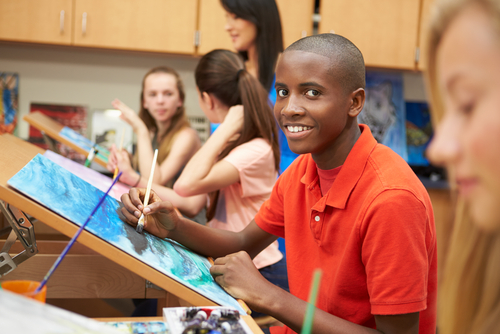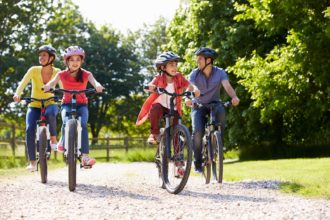Piano lessons can help you succeed in life. As parents, we want our kids to participate in activities beyond the classroom and athletic field to give them another outlet of expression, and to prepare them for a multicultural world. So we encourage the arts so they can play an instrument, take a photography class or join the drama club.
In recent years, the National Endowment for the Arts (NEA) has led research efforts to examine the relationship between the arts and health and well-being across one’s lifespan.
Arts & Humanities Make a Difference
In several studies, arts activities—such as taking arts lessons in-school or out-of-school—has been linked to a variety of positive cognitive and behavioral outcomes such as school readiness, academic success and civic engagement.
Researchers also have proposed that art participation is related to aspects of social-emotional development, such as helping, sharing and caring behaviors the ability to develop positive interpersonal relationships and to regulate emotions.
These positive effects may be particularly significant for troubled youth, as evidenced by programs such as Turnaround: Arts—an initiative of President Obama’s committee on the arts and humanities—which uses arts education as a tool to help turn around America’s struggling schools.
What You Should Know About the Arts and Development
I’ve been researching the link between early childhood arts participation (between birth and age eight) and social-emotional development. Here’s what I found….
- Several studies show positive associations between arts participation and social skills. For example, students in a music program showed improvements in cooperative behaviors over the school year compared to students that did not participate in a music program.
- Engagement in the arts is positively associated with the ability to regulate emotions. In one study, students in an 8-week music and dance program showed greater reductions in aggressive behaviors over time compared to students who did not participate in this program.
- Arts participation appears to have strong social-emotional benefits for troubled children, such as those in Head Start programs. Researchers, for instance, have found that toddlers in an arts integration program saw greater gains in their ability to regulate positive and negative emotions over the school year compared to toddlers that did not engage in an arts integration program.
- New and emerging evidence suggests that the arts—particularly music—has social-emotional benefits for children with autism. Children demonstrated more joint attention and cooperative behaviors during improvisational music therapy than they did in general play sessions.
To receive a copy of the literature review when it comes out—or to be on the list to get other arts-research updates from the NEA—email research@arts.gov.
Melissa Menzer, Ph.D., is a developmental research psychologist and program analyst at the National Endowment for the Arts, in the Office of Research and Analysis.





